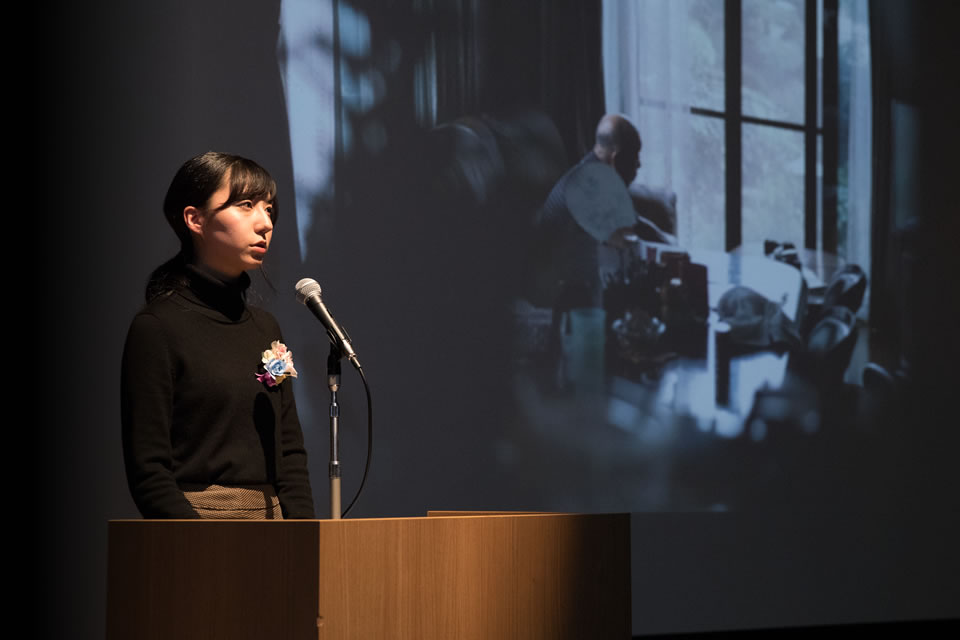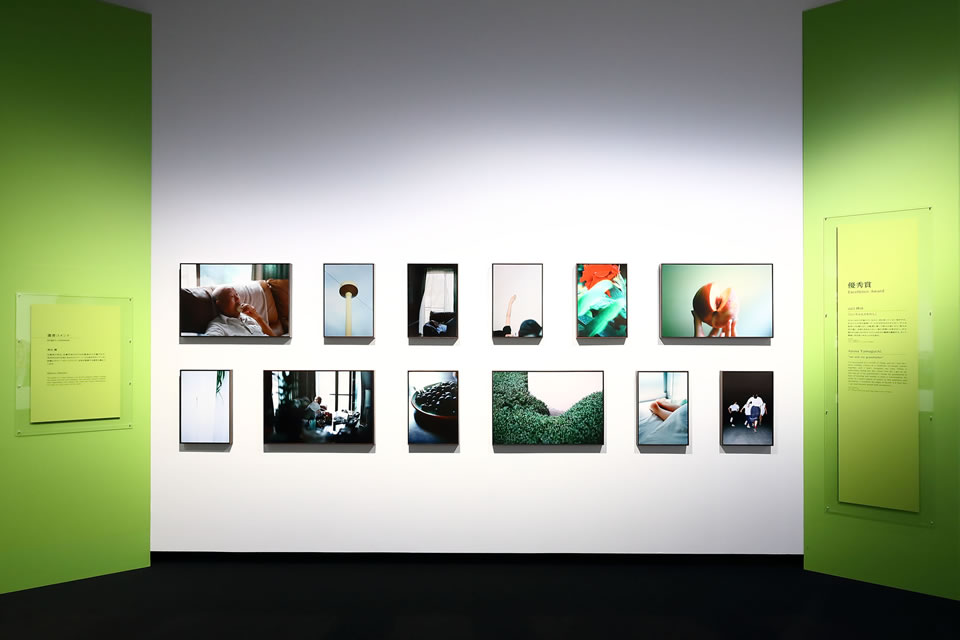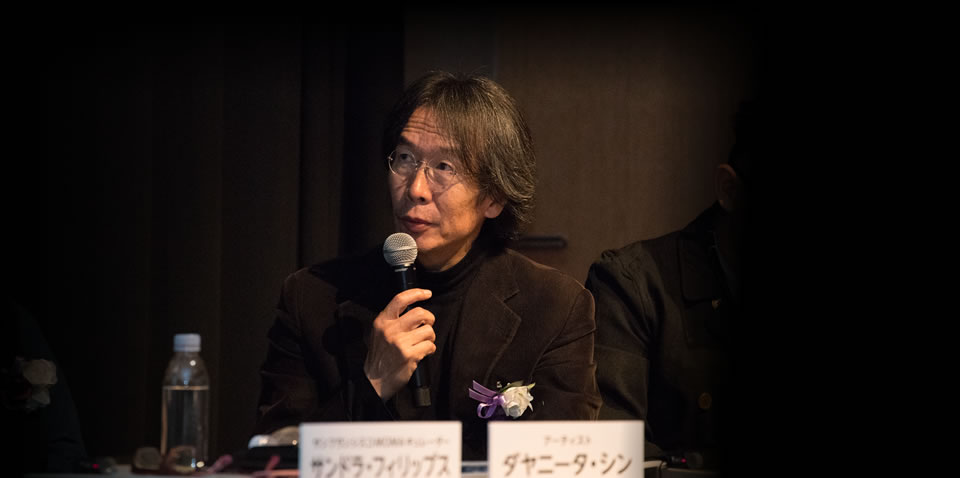PRESENTATION
In my daily life, a suffocating feeling occasionally comes over me out of a fear that someone is always watching me with a cold stare. Every time I say something or do something, I’m petrified of being laughed at or labeled. When I sense this suffocating feeling, I visit my grandfather’s house. My grandfather is hard of hearing and unable to have much of a conversation, but his space is quiet and peaceful and very comfortable, if a little lonely. In this space, I experience a sense of security, as if slowly melting into a quietude cut off from outside information.
My grandfather pays no heed at all when I point a camera at him. He is the complete opposite of me, who is forever aware of the gaze of others. Seeing his dignified, unpretentious form drains away my tension, allowing me to act naturally too. And when I look at my photos, a surprisingly unaffected sense of myself emerges. This work, then, is about being enveloped in my grandfather’s space while examining and unifying the me that I had lost sight of.
Photography, for me, is not something that connects to the outer world; it is an act of diving within myself. My mind is without thought until I press the shutter. In a perfectly blank state, I await some kind of reaction deep within myself. And then through the repeated processes of shooting, developing, printing, and editing, my own existence, little by little, becomes more certain. When I observe my world that appears in photographs, I feel my past anxiety ebb away. Since I started taking photographs, I’ve been able to find my place within myself.
I think photographic expressions are ambiguous. But photography is also a means of precisely expressing ambiguous emotions that don’t fit into words. I feel there is richness in the midst of such ambiguity. When I try to express something in words, something vital is left out in the gaps between words. Even as we force something into the semantic framework of language, something else is scraped away and simplified. Only photography can express those things that fail to fit into the framework and spill over the edges.


The photos in your work have an elemental power. You have perfectly rendered in photos what we see when we look at things. You have put on film a rich but fragile atmosphere and mood, time, and kindness — and you have us feel these very delicate things. This power really struck me. I very much like this work.

Judges’s Comment
Minoru Shimizu
Like the central character, your hard-of-hearing grandfather, photography exists in a world without sound, and your sensibility shines in this world. You also have a talent in formal photo editing.
In your book, “me and my grandfather,” your grandfather’s daily life is presented frame by frame without comment or fanfare in the form of a documentary. But just when you think it’s nothing more than another documentary, a type of motif re-emerges and reverberates, and the work manifests itself as more than just a sequence of pictures. That is the real charm of the book. When viewed on a wall, however, all this polish and stylishness comes immediately to the fore and half the charm is lost.
After exiting the miniature world of “me and my grandfather,” in other words in the future, what kind of photos are you thinking of shooting?
(Azusa Yamaguchi)
This work was an exercise in introspection. I don’t know how far I have to go to be satisfied. Should I become spontaneously more interested in the outer world, then I’d like to take photos along those lines. In essence, though, I think powerful works can only be created from subjects you have strong feelings about.